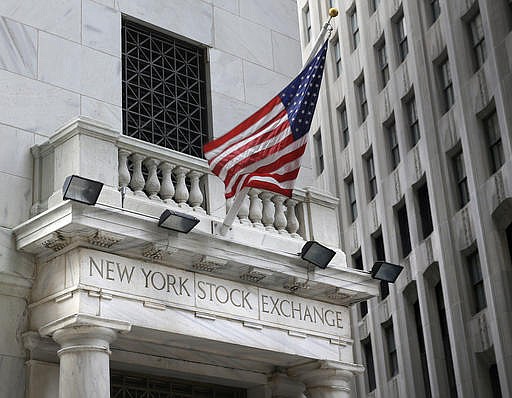NEW YORK (AP) - Stocks fell in light trading for a second day on Thursday as investors sifted through a mix of earnings reports.
The major indexes wavered between small gains and losses in the morning, then moved lower in the afternoon as investors dumped health care stocks. Disappointing earnings from a few retailers helped push down stocks of companies that rely on consumer spending.
The losses were modest, and both the Standard & Poor's 500 index and Dow Jones industrial average remain close to their record highs hit last week. Many investors are holding back from big bets now that the bulk of earnings reports are out and many traders are still on vacation. Only 2.9 billion shares traded hand on the New York Stock Exchange, a very low level.
"We're in an information vacuum," said Joseph Tanious, senior investment strategist at Bessemer Trust.
The Dow Jones industrial average fell 33.07 points, or 0.2 percent, to 18,448.41. The S&P 500 gave up 2.97 points, or 0.1 percent, to 2,172.47. The Nasdaq composite edged down 5.49 points, or 0.1 percent, to 5,212.20.
Biotech stocks stumbled again. Celgene and Regeneron Pharmaceuticals each fell more than 1 percent as investors worry about a backlash in Washington against increases in prices that politicians say amount to price gouging. Mylan, which has been under fire for steep increases in its EpiPen anti-allergy medicine, fell 0.7 percent.
Tiffany & Co. rose the most in the S&P 500 after the luxury retailer reported a slight increase in fiscal second-quarter profits that beat analyst estimates. It rose $4.41, or 6.4 percent, to $73.28.
Results from other companies were disappointing.
The biggest loser in S&P 500 was Dollar General, which plunged $16.18, or nearly 18 percent, to $75.61 after reporting earnings and revenue that fell short of forecasts. Signet Jewelers, the second-biggest decliner, fell $12.06, or nearly 13 percent, to $83.44 after its results also missed estimates.
Overall, earnings per share for companies in the S&P 500 are expected to fall 1.8 percent in the second quarter, according to S&P Global Market Intelligence. That would be the fourth quarter in a row of drops, nearly unheard of outside of a recession.
Many analysts expect earnings to surge toward the end of the year, which may explain why stocks are holding near highs. But some experts are not convinced.
"If you look at earnings, they're just not that great," said Phil Blancato, CEO of Ladenburg Thalmann Asset Management. "There isn't enough news to get people to sell and there isn't enough news to get people to buy."
In overseas trading, Germany's DAX dropped 0.9 percent, France's CAC-40 lost 0.7 and Britain's FTSE 100 fell 0.3 percent. Major markets in Asia were mostly unchanged. Japan's Nikkei 225 fell 0.2 percent.
Benchmark U.S. crude oil rose 55 cents to $47.32 a barrel. Brent crude, which is used to price oil internationally, rose 55 cents to $49.60 a barrel. Wholesale gasoline was little changed at $1.51 a gallon, heating oil rose 1 cent to $1.51 a gallon and natural gas rose 5 cents to $2.85 per 1,000 cubic feet.
U.S. government bond prices slipped. The yield on the 10-year Treasury rose to 1.58 percent. The dollar rose to 100.57 yen from 100.49 yen, while the euro rose to $1.1281 from $1.1261.
The price of gold fell $5.10 to $1,324.60 an ounce, silver fell 7 cents to $18.62 an ounce and copper was little changed at $2.08 a pound.

